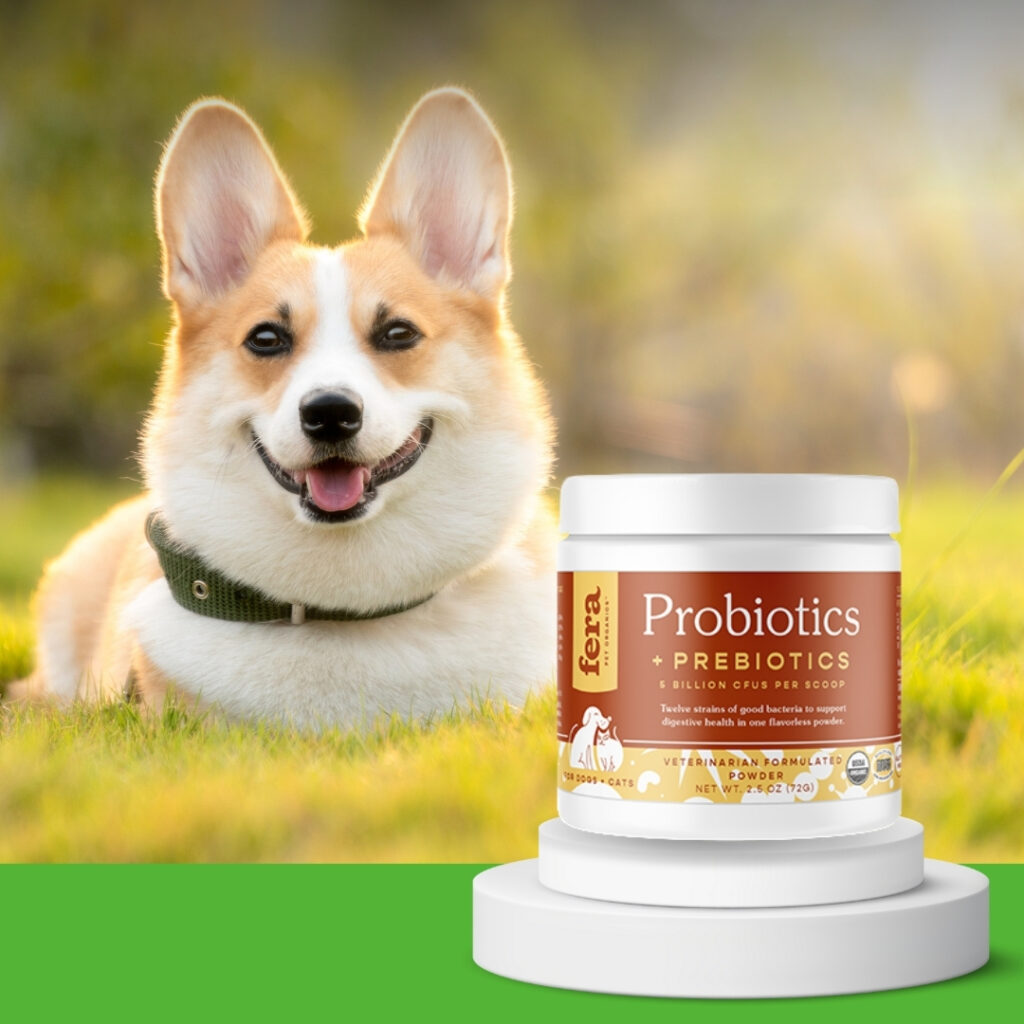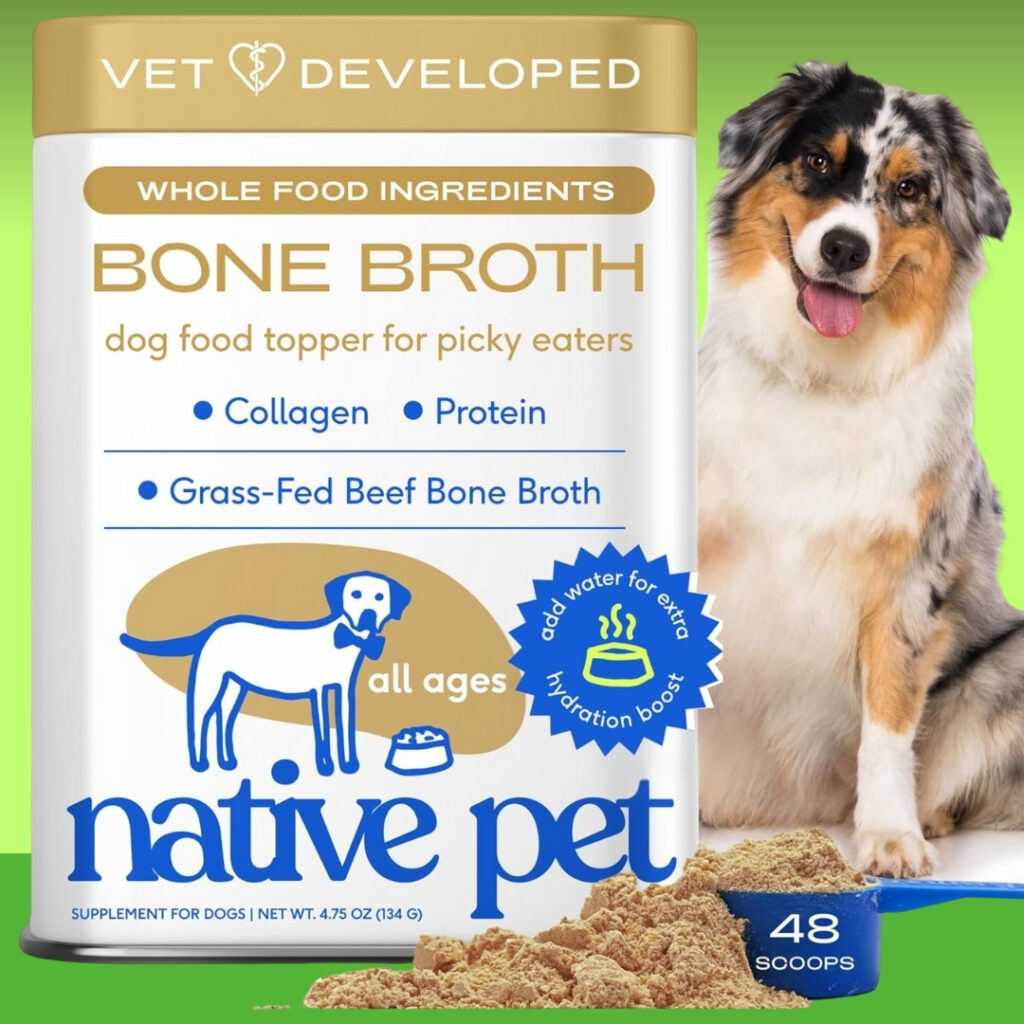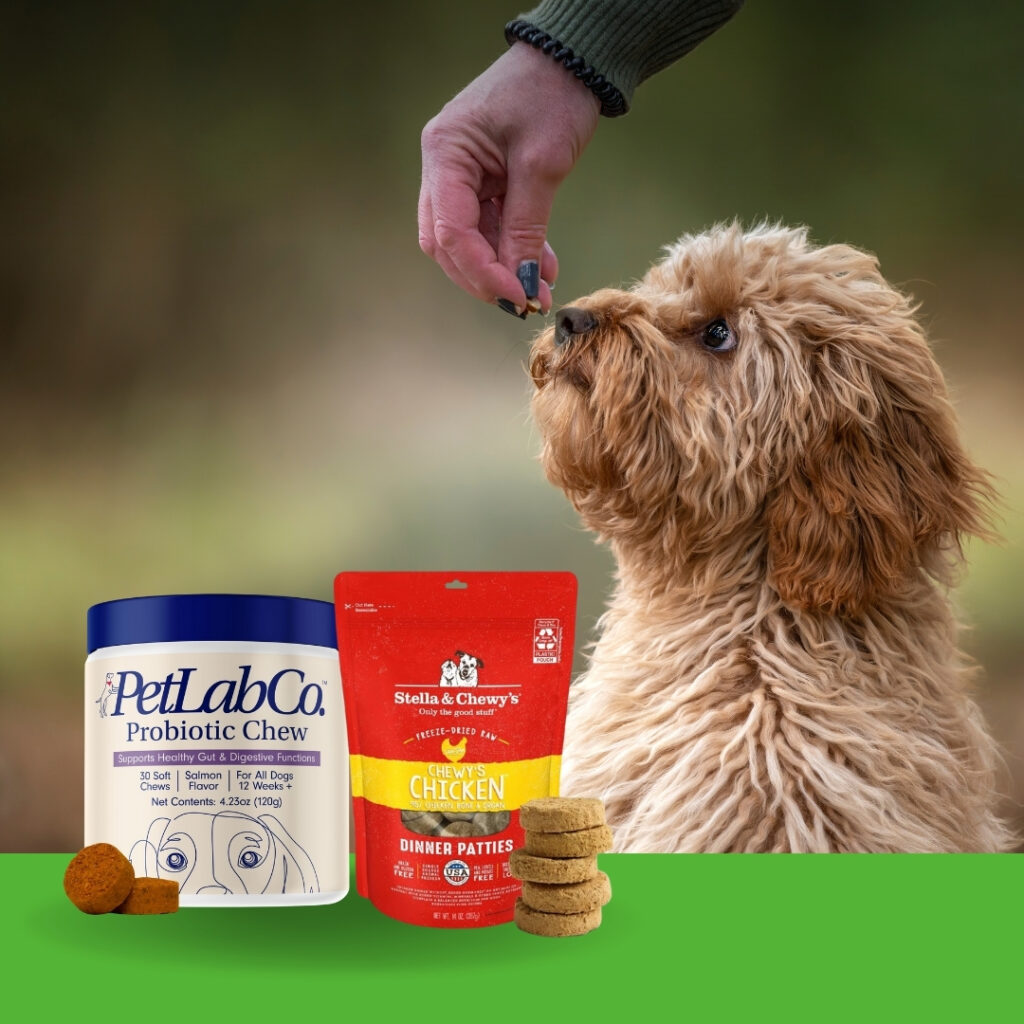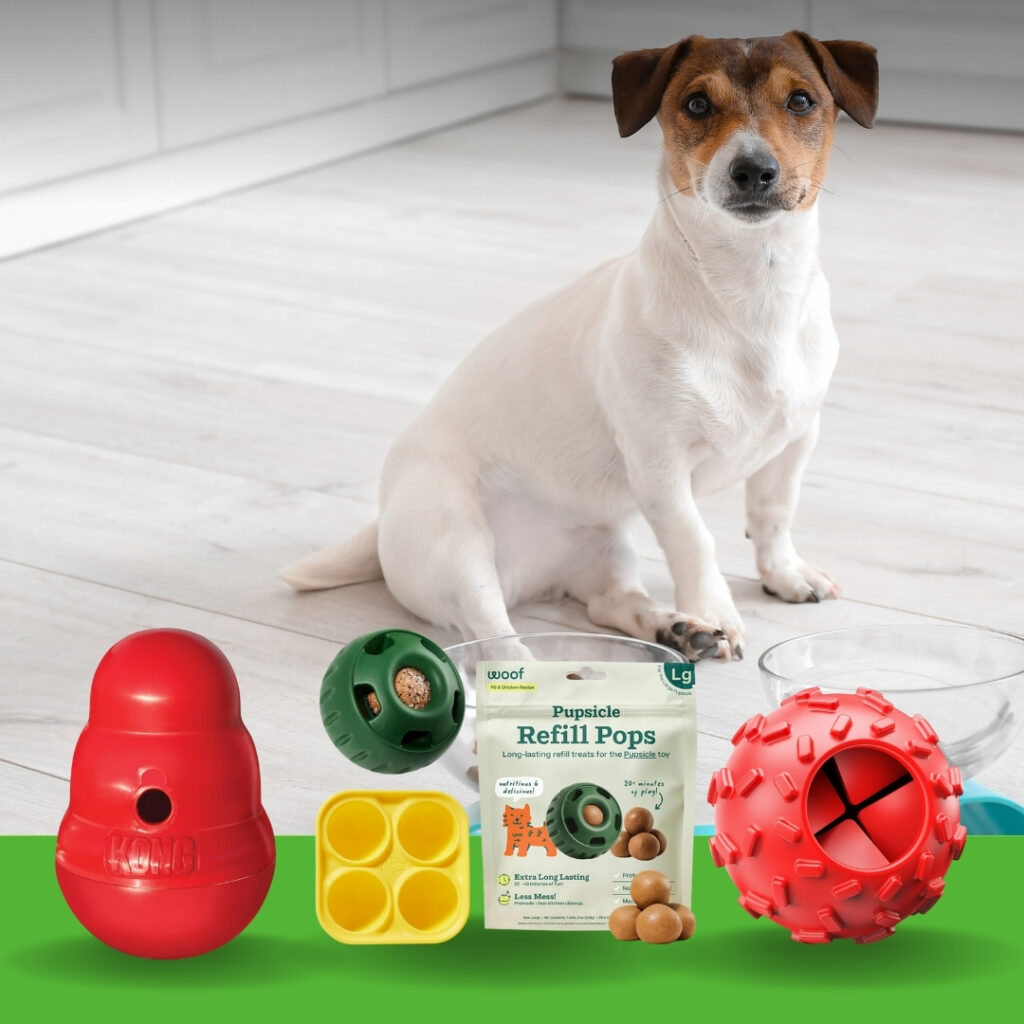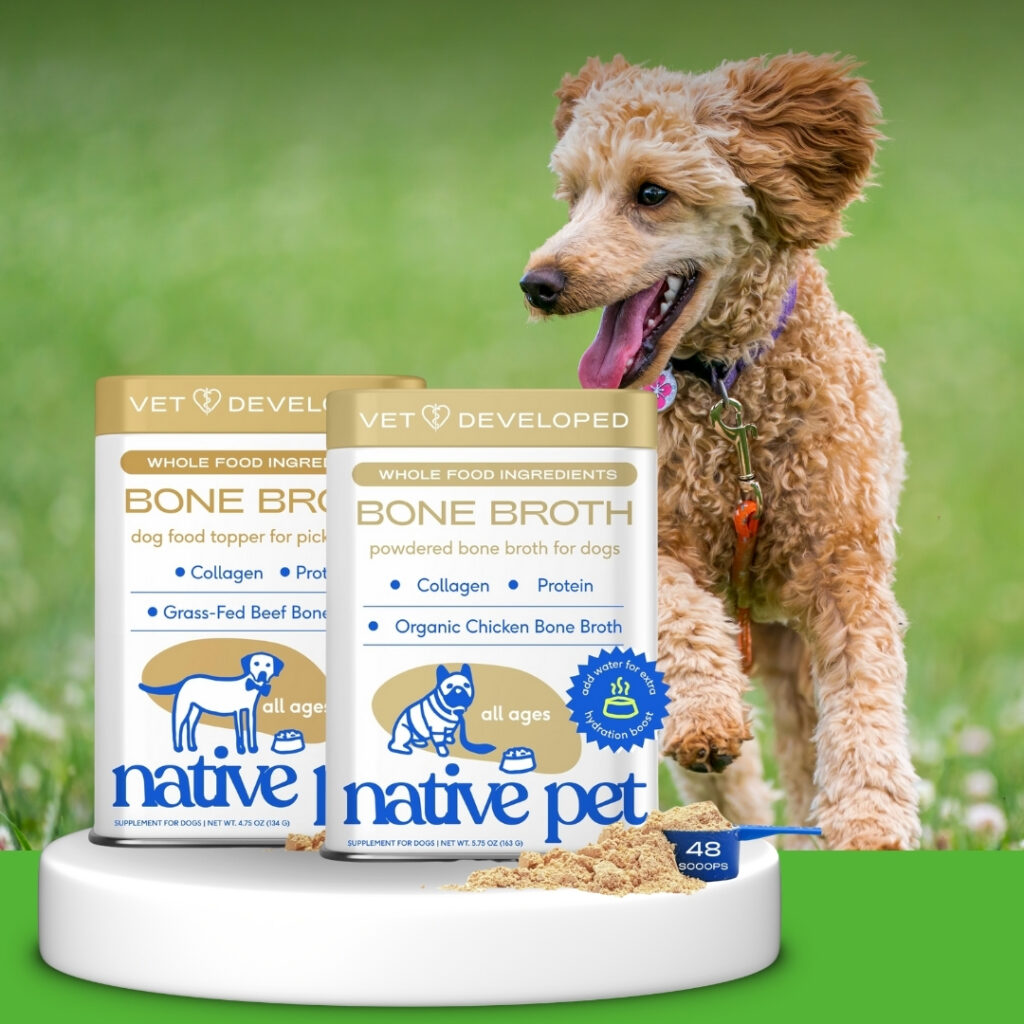Alright, listen up, I’ve been in the trenches of dog parenting, wiping up questionable puddles and googling “why does my dog’s stomach sound like a washing machine at 2am?” more times than I’d like to admit. Here’s the thing: a happy pup isn’t just about belly rubs and treats, it’s about what’s going on inside that fuzzy little gut. Probiotics? Absolute game-changer. I used to roll my eyes at dog supplements, but after seeing my pooch go from gassy disaster to zoomie champion, I’m convinced.
If you’re poking around for answers about dog probiotics, powders, chews, or just want to know which ones won’t make your wallet sob, yeah, I’ve been there. This isn’t some boring, clinical rundown. I’m dishing out the real stuff: what actually worked, what turned my dog’s stomach into a battlefield, and how I finally landed on a routine that keeps the tail wagging (and my carpet safe). Pull up a chair, pour some coffee, and let’s get your dog’s gut sorted out, because honestly, nobody has time for more surprise poops.
- Understanding Gut Health for Dogs
- Choosing the Best Probiotic for Dogs: What to Look For
- Featured Product: Fera Pet Organics Probiotics Advanced Powder
- Natural & Homemade Probiotics for Dogs
- Integrating Probiotics into Everyday Life
- Comparison: Forms of Dog Probiotics
- Common Scenarios & Personal Stories
- Which Type Is Right for You?
- Final Verdict
- FAQs
Understanding Gut Health for Dogs
Dogs, like humans, rely on a balanced gut microbiome to digest food, absorb nutrients, and maintain immune defense. Probiotics dogs rely on, whether in chews, powder, or food, help rebalance bacteria after illness, antibiotics, or dietary upset.
When your pup shows symptoms such as loose stools, gas, or a lack of appetite, it might be more than a passing tummy ache. That’s often a sign of a digestion problem in dogs, and this is where dog probiotic supplements can be life‑changing.
What Are Probiotics? (And Why They Matter)
Probiotics are live beneficial bacteria. When given in the right amounts, they support intestinal lining health, crowd out harmful microbes, and ease digestive discomfort. In practice:
- Bacteria strains like Lactobacillus and Bifidobacterium help break down food and produce beneficial compounds.
- They support regular, well-formed stools and reduce symptoms of probiotics for dogs with diarrhea.
- They even benefit dogs with sensitive stomachs or allergies.
Think of probiotics as tiny helpers repairing the gut, especially after things like antibiotics or stress.
Prebiotics, Fiber, and Whole Food Support
It’s not just probiotic additions that matter, prebiotics for dogs and a fiber supplement for dogs support the probiotic action by feeding the good bacteria. Prebiotics are non‑digestible fibers (like chicory root or inulin) that fuel beneficial microbes. Balanced fiber also adds bulk to stools and smooths transit time. Homemade or commercial probiotic dog food can naturally incorporate this synergy.
- POWERFUL FORMULA SUPPORTS GUT HEALTH & DIGESTION: Fera’s prebiotics and probiotics promote optimal g…
- ORGANIC INGREDIENTS WITH NO FILLERS: This USDA certified organic dog and cat probiotic is formulated…
- VETERINARIAN FOUNDED & FORMULATED IN THE USA: Fera’s cat and dog probiotics formula is crafted by ou…
Choosing the Best Probiotic for Dogs: What to Look For
With so many dog probiotic chews, powders, sprays, and dog food options out there, how do you choose? Based on my experience and research, here are guiding principles:
1. Strain diversity and CFU count
- Look for multiple strains (e.g. L. acidophilus, B. breve, etc.).
- A count of 1–5 billion CFUs per serving is typical; higher counts are okay if purity is ensured.
2. Delivery form: powder, chews, spray, or food?
- Dog probiotic chews are easy for picky pups or travel; convenient but calorie‑dense.
- Dog probiotic powder is ideal for sprinkling over meals with minimal fuss. Great for picky eaters or dosage flexibility.
- Probiotic dog food integrates supplementation automatically, handy but expensive.
- There’s even pet essentials probiotic spray or pet lab probiotic chews on the market. Look for vet recommended probiotics for dogs if possible.
3. Purpose-driven options
- Products labeled for probiotics for puppies with diarrhea can differ in strength and formulation from adult options.
- Dogs with chronic digestive issues may benefit from natural probiotics for dogs or homemade probiotics for dogs, but commercial standards ensure safety.
4. Additional benefits
- Some supplements combine probiotics with digestive enzymes or fish oil. They count as dog supplements and pet supplements under a health umbrella.
- Choose vet‑formulated or third‑party tested options to ensure reliability.
5. Price and transparency
- Compare brands, but don’t just pick the cheapest. Ask: which is the cheapest pet food supplement that still delivers quality? Always read label facts.
Featured Product: Fera Pet Organics Probiotics Advanced Powder
One probiotic product that earned a permanent spot in our routine is Fera Pet Organics Probiotics Advanced powder for dogs. I discovered it after my dog had a sensitive stomach due to antibiotics and stress. Let me walk you through why it stands out:
- It’s a dog probiotic powder that mixes easily with food, even for fussy eaters.
- It contains multiple bacterial strains in high CFU (billions per scoop), plus prebiotic fiber to feed the probiotics.
- It’s grain‑free and includes natural ingredients so I feel good about daily use.
- POWERFUL FORMULA SUPPORTS GUT HEALTH & DIGESTION: Fera’s prebiotics and probiotics promote optimal g…
- ORGANIC INGREDIENTS WITH NO FILLERS: This USDA certified organic dog and cat probiotic is formulated…
- VETERINARIAN FOUNDED & FORMULATED IN THE USA: Fera’s cat and dog probiotics formula is crafted by ou…
How and When We Use It
I started using it when my dog, Bella, had diarrhea after a vet‑prescribed medication. For three days, I mixed a half‑scoop with her dinner and slowly increased to a full serving. Within 24 hours, her stool was more formed, she was eating again, and she had renewed energy. By the end of five days, her gut was fully back on track.
I now keep a tub in our kitchen. Whenever there’s an upset stomach, whether from travel, stress, or digestion problem in dogs, we use it immediately. We also occasionally use it preventively when switching foods or after vet visits.
Customer Experience (Summarized Testimonials)
From reviews shared online, many dog parents echo our experience. One owner noted that after they “saw steady improvement in stool consistency within two days” and “noticed their dog had better appetite and energy.” Another wrote, paraphrased: “My puppy had loose stools, and after Fera powder I saw fast results, no more accidents in the house.” These stories reflect a common theme: visible digestive relief, happier pups, and better overall mood.
Tangible Results in Our Home
- Resolved diarrhea within one to two days
- Improved appetite and better energy levels
- No more recurring upset tummies after switching food
- Safe for long‑term use; no additives or artificial fillers
Natural & Homemade Probiotics for Dogs
If you’re drawn to DIY or whole‑food solutions, homemade probiotics for dogs can complement commercial products nicely. But always consult your vet first, some fermented foods (like raw kefir or yogurt) might not suit every dog.
Gentle Homemade Options
- Plain, unsweetened goat’s milk kefir (a few teaspoons in food) can introduce live cultures.
- Cooked and cooled sweet potato mash with a dab of plain yogurt is a gentle way to introduce probiotics.
- These can work especially for dogs terrified of pills or powders.
Why Commercial Supplements Often Work Better
- Dosage is guaranteed, and bacterial strains are selected for safety.
- Veterinarian recommended probiotics for dogs usually offer stability and purity.
- Homemade can be useful short term, but not always reliable long term.
- POWERFUL FORMULA SUPPORTS GUT HEALTH & DIGESTION: Fera’s prebiotics and probiotics promote optimal g…
- ORGANIC INGREDIENTS WITH NO FILLERS: This USDA certified organic dog and cat probiotic is formulated…
- VETERINARIAN FOUNDED & FORMULATED IN THE USA: Fera’s cat and dog probiotics formula is crafted by ou…
Integrating Probiotics into Everyday Life
Starting a Routine
- Begin with a small dose, especially for sensitive dogs or young puppies.
- Monitor stool and energy levels.
- Gradually increase to full dosage per packaging instructions or vet guidance.
Combining Supplements Safely
If using a dogs supplement routine that includes fish oil, multivitamins, or joint support, space out doses and monitor tolerance. For example, probiotics at dinner, other supplements at breakfast.
When to Restart after Upset
If your dog gets diarrhea again, perhaps after travel, stress, or antibiotics, restart the probiotic immediately. A 3‑ to 5‑day mini‑course often resets the gut.
Long‑term Maintenance
Some owners add probiotics a few times per week or use a day‑off schedule to maintain gut health for dogs. Others use daily dosing as a protective layer, especially in senior dogs or those prone to digestive ups and downs.
Comparison: Forms of Dog Probiotics
| Feature | Pros | Considerations |
|---|---|---|
| Powder | Flexible dosage, easy for mixing | May require stirring into food |
| Chews | Tasty treat-like, convenient | Extra calories, may include fillers |
| Probiotic Dog Food | Automatic supplementation | Higher cost, less dosage control |
- Powder (like our featured choice) is ideal for dosing precision and sensitive eaters.
- Chews are great for busy pet parents or picky dogs who refuse powders.
- Probiotic dog food offers total integration but is costlier and less flexible in dosage.
- POWERFUL FORMULA SUPPORTS GUT HEALTH & DIGESTION: Fera’s prebiotics and probiotics promote optimal g…
- ORGANIC INGREDIENTS WITH NO FILLERS: This USDA certified organic dog and cat probiotic is formulated…
- VETERINARIAN FOUNDED & FORMULATED IN THE USA: Fera’s cat and dog probiotics formula is crafted by ou…
Common Scenarios & Personal Stories
Scenario 1: Puppy with Diarrhea
When our neighbor’s new puppy had loose stools during toilet training, they used a probiotics for puppies with diarrhea product alongside proper diet changes. Within 48 hours, the puppy was calmer, eating well, and accidents decreased. Their vet also confirmed hydration and appetite were back to normal.
Scenario 2: Senior Dog & Sensitive Stomach
My older dog Lucy became sensitive after switching kibble. Gas, irregular stools, poor appetite, classic digestion problem in dogs signs. After three days of a vet‑recommended probiotic powder, her GI symptoms resolved, and she regained her spark.
Scenario 3: Travel & Stress
On our road trip last spring, our usual routine got disrupted. Bella skipped meals, felt anxious, and had mild diarrhea. I carried a small travel‑size packet of probiotic chews, and after one chew at dinner, her mood uplifted and her digestion calmed quickly. Stress‑related upset stomachs are one of the most common uses of probiotics dogs rely on.
Which Type Is Right for You?
- If you need the best probiotic for dogs overall with control and convenience, dog probiotic powder like Fera Pet Organics is highly recommended. It’s vet formulated, effective, and gentle.
- For dog probiotic chews, look for vet‑tested brands with minimal fillers and balanced CFUs. Some are branded pet lab probiotic chews or pet essentials probiotic spray products.
- If you want natural probiotics for dogs or homemade probiotics for dogs, use them cautiously, ideally paired with low doses of commercial supplements for consistency.
- For diarrhea concerns, products labeled probiotic for dog diarrhea, probiotics for dogs with diarrhea, or probiotics for puppies with diarrhea are specifically formulated to act quickly.
Where probiotics shine:
- Quick support for diarrhea or loose stools
- Gut rebalancing after stress, travel, or antibiotics
- Preventive maintenance in sensitive or senior dogs
Things to keep in mind:
- Always introduce a new supplement gradually
- Monitor hydration and stool quality closely
- Discuss long‑term use with your veterinarian, especially for puppies or dogs with health conditions
Final Verdict
If your dog has ever struggled with loose stools, poor appetite, or gas, it might be time to take proactive steps. Investing in the best probiotic for dogs, like a trusted powder or chew, can restore gut balance and support long‑term health. Want to try the same probiotic powder that’s helped my dogs countless times? Grab a tub of Fera Pet Organics Probiotics Advanced Powder HERE.
You can also explore vet recommended probiotics for dogs or natural alternatives if you’d like help choosing the right product. Feel free to comment below with your dog’s story, or reach out if you need tailored advice. Your pup deserves the very best care, and we’re here to help!
FAQs
When I first met my rescue, Piper, at the shelter, she was just a bundle of nerves, hiding in the back of her kennel, too scared to even look at me. The first few months were heartbreaking; she was terrified of everything. I almost gave up. But one afternoon, working on a simple ‘touch’ command, something clicked. I saw a flicker of trust in her eyes, a tiny wag of her tail.
That single moment changed everything. We channeled her anxiety into agility training, not to win ribbons, but to build her confidence step-by-step. Seeing that fearful shelter dog now leap over hurdles with joy is a constant reminder that with enough patience and understanding, any dog can learn to trust the world again.

